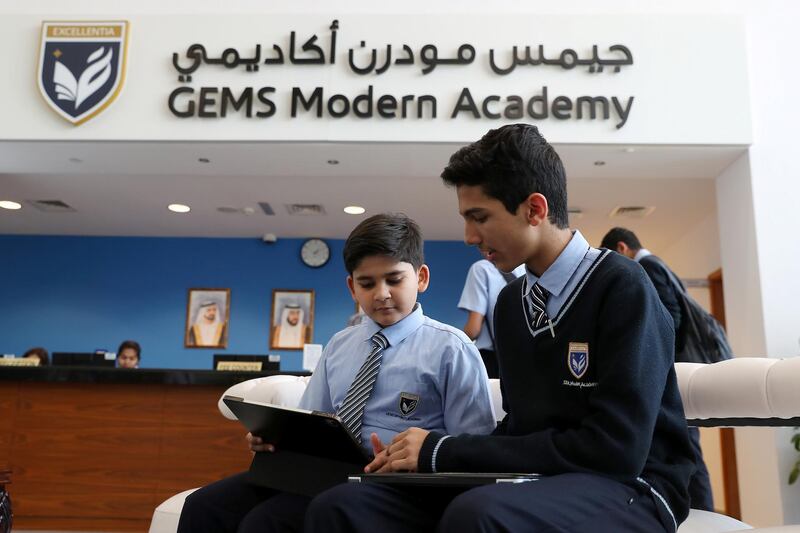As one area of the Middle East’s alternative asset classes continues to flourish, another is struggling to reinvent itself.
The venture capital industry in the region is enjoying a purple patch, as governments around the region from Amman to Muscat look to support SMEs as part of diversification efforts. Sovereign funds, too, are either making direct investments or backing venture funds in the hope that they will unearth the next MENA unicorn, following Dubai-based Careem’s $3.1 billion (Dh11.38bn) sale to Uber last year.
Yet in the private equity space, more firms are either consolidating or simply shutting up shop due to the difficulty in raising new capital.
“Private equity as an asset class has been consolidating in the region,” says Karim El Solh, co-founder and co-managing partner of Abu Dhabi-based Gulf Capital.
“It’s a bit of a Darwinian consolidation, where the top 20 per cent account for 80 per cent of assets under management. That’s happened in the US, Asia and it’s happening now [in the Middle East],” he adds.
At the height of the industry’s fortunes in the region before the 2008 financial crisis, there were more than 100 private equity firms in the region, Mr El Solh says.
“Today, you’re looking at about a dozen, essentially. So, a big consolidation, but you have firms that are emerging as bigger and stronger firms and the weaker ones are being eased out,” he argues.
The main challenge, according to Imad Ghandour, co-founder and managing director of private equity firm Cedarbridge, is raising capital.
“If you break down private equity, there are three big stages — you have to fundraise, you have to invest and you have to exit. If there is no fund-raising, then eventually there will be no exit in the long term. Today, what you are seeing is exits from funds raised many years ago and that will continue as these funds wind down,” he says.
Others are not quite so pessimistic. Fund-raising by regional private equity houses may not be at the highs of 2008, when about $5bn was raised, but the average amount raised by regional participants in the sector has still averaged about $1bn over the past five years, according to the leader of EY MENA's transaction services advisory team, Matthew Benson.
Data provided to The National by Preqin, which tracks the alternative asset industry, says three private equity funds with exposure to the Middle East closed last year, which was one less than in 2018.
In terms of deals, Preqin data shows there were 12 Middle East private equity buy-out deals done last year, which was four fewer than in 2018, but the aggregate value rose to $1.5bn, compared to $600m in 2018.
This was largely due to the $1bn buy-out of Dubai-based Gems Education, which saw CVC acquire a 30 per cent stake as investors including Fajr Capital, Blackstone Group Bahrain’s sovereign fund Mumtalakat and Malaysia's sovereign fund Kazanah sold their stakes.
The Gems deal was symptomatic of the industry’s fate, as from the point of view of Fajr Capital, the main local PE investor, the investment came from a fund that was raised about a decade ago, says Mr Ghandour.
“That will not happen again. Unfortunately, there is no appetite either from local or international investors to invest in funds from the region,” he says. “Local investors, like the ones that backed Fajr, are looking for geographical diversification and international investors are finding that the returns are better with less risk in North America an Europe.”
Global investor sentiment has taken a hit as a result of the 2018 collapse of Abraaj Capital, the Dubai-based fund which was the region’s biggest private equity player, but Mr Ghandour says the difficulties in fund-raising predate this, with many fund managers beginning to merge or downsize from 2015.
“The long-term outlook is that the industry is resizing, or downsizing, to a more modest level. It will never die because there are always opportunities and interest but at one point the dry powder in Middle Eastern funds was $22bn — we’re going to be very, very far from that point as we move onwards.”
Middle East PE firms have found fund raising increasingly challenging in recent years.
Despite this, Mr Benson argues that "fund-raising for PEs with deep expertise and strong branding will not be tough".
"Blackstone, for example, raised $20 billion from PIF [Saudi Arabia’s Public Investment Fund] in 2017/2018,” he says.
Mr El Solh, too, believes the wave of venture capital coming into the region to back technology start-ups also provides opportunities for growth capital funds.
“The bright spot, today, in the region is on the tech sector and you’ve had a lot of big success stories, with Uber acquiring Careem, we sold Destinations of the World to Webjet, Amazon bought Souq.com … so you see the rise of a tech scene and some very attractive returns. I think that’s going to be very exciting.”
Gulf Capital has deployed about Dh1bn into technology-focused firms, and he says this has been in the form of growth capital, as opposed to late-stage venture funding.
“Five of the six deals we’ve done to date were super-profitable, established companies with track record, profitability and cashflows,” he says.
“So we are still playing in private equity — we’re not taking any venture risk.”
Mr Ghandour, too, sees opportunities in technology, with Cedarbridge currently in the process of raising a tech-focused fund that will be based at Abu Dhabi Global Markets. It has also made several successful investments in the beauty sector, and is raising a Europe-based, global fund specialising in that market.
Mr El Solh says it has made five investments over the past 12 months, and that 75 per cent of its third fund is now deployed, with some capital remaining for bolt-on acquisitions.
“In 2020, we’ll finish investing in the fund and in 2021 we’ll launch the next fund,” he says.
He also says the thinning out of the private equity field creates opportunities for those with funds left to deploy.
"If you look at US and European private equity, there's so many players and so much dry powder — too much money chasing few deals and valuations are out of reason, essentially. Here, there are very few players — you can find wonderful companies in fast-growth sectors at attractive valuations," he said at a press conference on Tuesday announcing the firm's biggest deal to date — the $100m carve-out of IVI Middle East.
Anil Menon, EY's Mena M&A and equity capital markets head, highlights the "demographic dividend" associated with the region's young and fast-growing population, and investments linked to government diversification plans and the fourth Industrial Revolution as areas that are "creating unprecedented opportunities in the market across sectors" on which PE firms can capitalise.
“We expect that regional PEs will emerge stronger from this short-term setback, possibly resulting in a Middle East landscape with fewer, but larger and more focused funds.”








